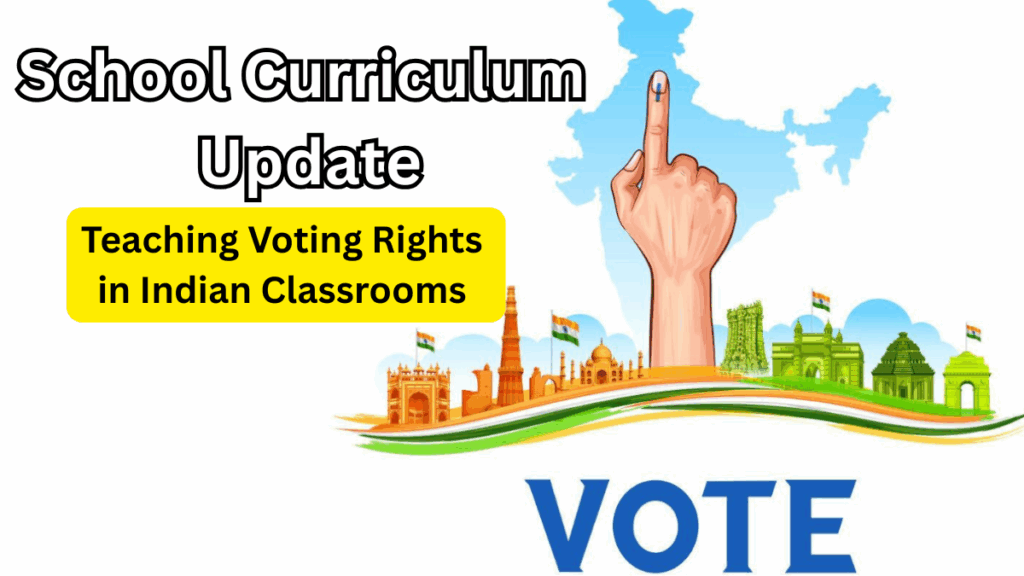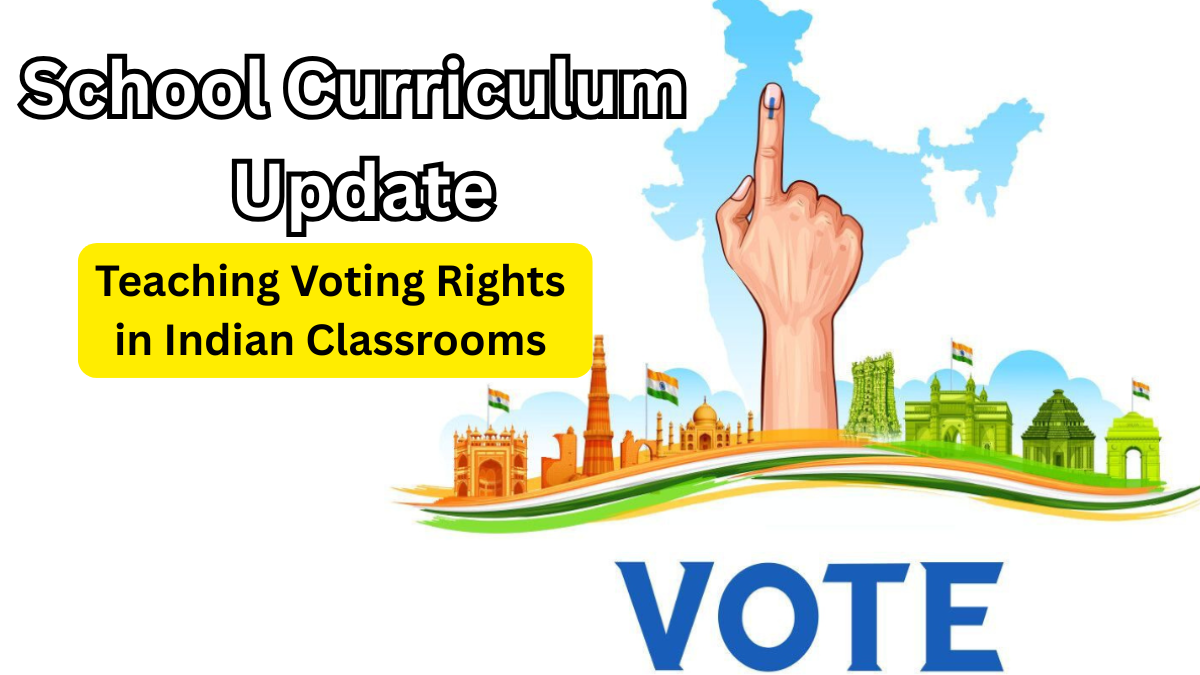In a democratic country like India, understanding voting rights is not just essential—it’s empowering. With the new School Curriculum on Voting, students will learn about the importance of democratic participation from an early age. This step is part of a broader Civics Education Reform, aimed at making classroom lessons more practical, engaging, and relevant to real life.

Why This Change Matters?
For decades, civics lessons in schools have been limited to textbook definitions and rote memorization. But democracy thrives when its citizens are informed and proactive. The updated curriculum ensures that:
-
Students understand why voting matters in shaping the nation
-
They learn about the history and evolution of voting rights in India
-
They gain exposure to how elections work in a real-world context
This is a significant leap forward in fostering responsible future voters.
Key Features of the New Curriculum
The revised School Curriculum on Voting emphasizes experiential learning rather than just theory. Here’s what students can expect:
-
Interactive Sessions: Debates, role-plays, and mock elections to understand electoral processes
-
Practical Knowledge: Insights into how voting lists are prepared and what voter ID registration involves
-
History & Law: Lessons on landmark constitutional provisions and historical struggles for voting rights
-
Digital Literacy: Understanding the role of technology in modern elections
What Will Students Learn?
Below is a quick look at the learning framework under this reform:
| Focus Area | Key Lessons |
|---|---|
| Democracy & Rights | Importance of voting in a democracy |
| Constitutional Provisions | Articles related to universal adult suffrage |
| Practical Participation | How to register as a voter, mock elections |
| Critical Thinking | Analyzing voting patterns and reforms |
This approach makes Civics Education Reform meaningful, ensuring students not only study democracy but also experience its working in classrooms.
How Teachers Will Be Trained
Educators will undergo specialized training sessions to handle these new modules effectively. Workshops will focus on:
-
Making civics discussions engaging and student-friendly
-
Conducting mock election exercises to build participation skills
-
Integrating real-life case studies into classroom discussions
This ensures that the School Curriculum on Voting is delivered with the right balance of theory and practice.
Expected Impact
By incorporating Civics Education Reform into the school framework, students will:
-
Develop a sense of civic responsibility early in life
-
Gain confidence to participate actively in future elections
-
Grow into informed citizens who value democratic principles
This isn’t just an academic update—it’s an investment in India’s democratic future.
FAQs
What is the purpose of the School Curriculum on Voting?
The purpose is to educate students about their voting rights, the electoral process, and the importance of active participation in democracy.
How is this part of the Civics Education Reform?
This update is a crucial part of the Civics Education Reform, designed to make civics classes more practical and impactful by integrating real-life democratic practices into the syllabus.
Will all schools follow this new curriculum?
Yes, the update will be implemented gradually across schools affiliated with various education boards, ensuring nationwide impact.
How will students benefit from mock elections?
Mock elections give students hands-on experience with the voting process, helping them understand how elections are conducted and why every vote counts.
Click here to learn more
